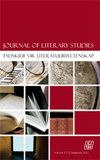驾驭气候灾难的女性:在小说选集中挑战人类中心主义
IF 0.1
4区 文学
0 LITERARY THEORY & CRITICISM
引用次数: 0
摘要
这篇文章探讨了两位作者如何通过揭露和挑战人类中心主义来表现女性角色,尽管方式截然不同,但她们都参与了即将到来的气候灾难。入选的小说是珍妮·奥菲尔的《天气》和夏洛特·麦康纳的《最后的移民》,分别于2020年和2021年出版。两部小说都获得了评论界的一致好评,并且都在标题中表明了它们的主要创作动力。奥菲尔的主角莉齐与丈夫和年幼的儿子在纽约过着中产阶级的生活,而麦康纳的主角弗兰尼失去了丈夫和孩子,在爱尔兰、澳大利亚和格陵兰岛之间奔波,勉强维持生计。我使用一个可以被广泛描述为女权主义生态批评的理论框架作为我分析的镜头,我动员了在与气候变化和批判性动物研究相关的一系列领域工作的学者的概念干预。我将探讨我选择的小说中的女性角色是如何应对即将到来的气候灾难的,我将论证学者们可以通过密切关注作者如何在他们对这些经历的表现中挑战人类中心主义来深入了解她们的经历。为了努力制止人类对自然界造成的破坏,我们需要建立一种尊重、尊重和肯定与我们共享地球的所有居民生命的互动。我在这篇文章中调查的人际关系大多与这些目标相差甚远,这些失败可以追溯到固执的坚持,或者有时是毫无疑问的假设,即人类比我们居住的世界其他地方更有价值。这种无法与自然世界的其他部分产生有意义和同理心的联系,使得人类造成了造成当代气候危机的浩劫。我将说明,文本提供的希望之光可以在人类角色至少试图以尊重和肯定其动物生命价值的方式与非人类角色进行尊重互动的实例中找到。本文章由计算机程序翻译,如有差异,请以英文原文为准。
Women Navigating the Climate Catastrophe: Challenging Anthropocentrism in Selected Fiction
Summary This article explores how two authors represent female characters who engage with the impending climate catastrophe by exposing and challenging anthropocentrism, albeit in very different ways. The selected novels, Weather by Jenny Offill, and The Last Migration by Charlotte McConaghy, were published in 2020 and 2021 respectively. Both novels were met with significant critical acclaim and both announce their central authorial impetuses in their titles. Offill’s main character, Lizzie, lives a life of middle class privilege with her husband and young son in New York while McConaghy’s protagonist, Franny, has lost her husband and child and scrapes a living as she moves between Ireland, Australia and Greenland. I use a theoretical framework that can broadly be described as feminist ecocriticism as a lens for my analysis and I mobilise conceptual interventions by scholars working in a range of fields related to climate change and critical animal studies. I will explore how the female characters in my selected novels navigate the impending climate catastrophe and I will argue that scholars can gain insight into their experiences by paying close attention to how the authors challenge anthropocentrism in their representations of these experiences. In order to work towards staunching the damage human beings are doing to the natural world, we need to build interactions that honour, respect and affirm the lives of all inhabitants with whom we share the earth. The relationships I investigate in this article mostly fall far short of these goals and these failures can be traced back to the stubborn insistence or, at times, unquestioned assumption, that human beings have greater value than the rest of the world we inhabit. This inability to relate meaningfully and empathetically to the rest of the natural world allows humans to wreak the havoc that has resulted in the contemporary climate crisis. I will illustrate that the glimmers of hope that the texts do offer can be found in the instances where the human characters at least attempt respectful interactions with their nonhuman counterparts in ways that honour and affirm the value of their animal lives.
求助全文
通过发布文献求助,成功后即可免费获取论文全文。
去求助
来源期刊

Journal of Literary Studies
Multiple-
CiteScore
0.50
自引率
0.00%
发文量
0
期刊介绍:
The Journal of Literary Studies publishes and globally disseminates original and cutting-edge research informed by Literary and Cultural Theory. The Journal is an independent quarterly publication owned and published by the South African Literary Society in partnership with Unisa Press and Taylor & Francis. It is housed and produced in the division Theory of Literature at the University of South Africa and is accredited and subsidised by the South African Department of Higher Education and Training. The aim of the journal is to publish articles and full-length review essays informed by Literary Theory in the General Literary Theory subject area and mostly covering Formalism, New Criticism, Semiotics, Structuralism, Marxism, Poststructuralism, Psychoanalysis, Gender studies, New Historicism, Ecocriticism, Animal Studies, Reception Theory, Comparative Literature, Narrative Theory, Drama Theory, Poetry Theory, and Biography and Autobiography.
 求助内容:
求助内容: 应助结果提醒方式:
应助结果提醒方式:


